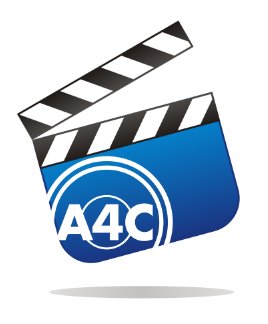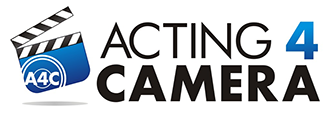“7 Clues Your Acting Teacher Sucks (Or Rocks!)”
“Learning is like rowing upstream: not to advance is to drop back” – Chinese Proverb
Everyone learns differently just as everyone teaches differently. All you need is to find the teacher you like and actually learn something. Simple. Or is it?
 The first thing to know is that there is a massive difference between teaching and directing. In my experience, the vast majority of people calling themselves ‘Teachers’ are simply ‘Directors’. They give you their opinion (which is entirely subjective) and your performance may even improve somewhat. Next time though, you are wholly reliant on their opinion since – in the absence of technique – it’s all you have. A good Director may eke out one great performance, but a good Teacher will lay the foundations for a lifetime of great performances.
The first thing to know is that there is a massive difference between teaching and directing. In my experience, the vast majority of people calling themselves ‘Teachers’ are simply ‘Directors’. They give you their opinion (which is entirely subjective) and your performance may even improve somewhat. Next time though, you are wholly reliant on their opinion since – in the absence of technique – it’s all you have. A good Director may eke out one great performance, but a good Teacher will lay the foundations for a lifetime of great performances.
In your current class, are you being taught or directed?
TEST:
- Can you do what you’ve been taught on your own?
- Can you explain or demonstrate it clearly to a complete stranger?
- Do others (in the absence of the ‘teacher’) agree that your performance has demonstrably improved?
“Every act of conscious learning requires the willingness to suffer an injury to one’s self-esteem. That is why young children, before they are aware of their own self-importance, learn so easily” – Thomas Szasz
“The rehearsals must be safe so that the performance may be dangerous” – Declan Donnellan (The Actor and the Target)
 We all have a Safety Zone, a place where all is good and nothing challenges what we know and a Panic Zone, where all is hell and painful and we try to avoid it like the Plague. Nothing can be learned in either zone. The space in between though: the Stretch Zone is where all learning occurs. You cannot develop a muscle if you never use it (Safety) and you cannot develop it if you stretch it to breaking point (Panic). The Stretch Zone is exactly that. It doesn’t hurt, but it stretches you. It challenges the familiar to take you into new areas.
We all have a Safety Zone, a place where all is good and nothing challenges what we know and a Panic Zone, where all is hell and painful and we try to avoid it like the Plague. Nothing can be learned in either zone. The space in between though: the Stretch Zone is where all learning occurs. You cannot develop a muscle if you never use it (Safety) and you cannot develop it if you stretch it to breaking point (Panic). The Stretch Zone is exactly that. It doesn’t hurt, but it stretches you. It challenges the familiar to take you into new areas.
Does your teacher provide warm, fuzzy environments where you feel snuggly but learn sweet FA? Do they rule with an iron fist and freeze the temperature in the room so that taking a chance becomes impossible? Or do they provide a structure within which success and failure are both an option, (because without either learning is impossible)?
TEST:
- Does the class enter into regular debate or discussion?
- Has the teacher ever changed their mind due to a debate?
- Do you feel you can challenge a concept raised by the teacher?
- Does your teacher ask rhetorical questions (Eg: “You know what I mean?”, “You get me?”, “Does that make sense?” and then continue talking before you can answer)?
- Are you constantly criticised?
- Are you consistently praised? *
* Keep in mind that someone can appear ‘nice’ and still freeze a room, just as someone can command a room and make you feel in control.
“Experience: that most brutal of teachers. But you learn, my God do you learn” – C.S. Lewis
Regardless how you learn (Auditory, Visual, Kinesthetic) the final test is in the doing (kinesthetic). If you don’t get to perform your scene at least three times in a session, you have probably not absorbed the lessons. Now, you may only perform one section of the scene three times, but this is preferable to performing the whole scene only once. What can you possibly achieve in that time?
Most people, ultimately, learn kinesthetically:
TEST:
- How often are you getting to act? Are you up every week? For how long per session?
- Are there too many people in the class?
- How many notes did you receive? Were they the same as usual or peculiar to this class?
- Were the notes do-able? (Eg: Were they achievable or were they the old, familiar clichés: “Be present”, “Connect” and “Listen” – all true but impossible to do.)
“You don’t understand anything until you learn it more than one way” – Marvin Minsky
 Whether you are directed or actually taught, it is essential that the teacher open your mind to the world of methodologies, techniques and approaches to acting. I encourage people to read books that I like and even books I don’t like. I want people to have an opinion, not my opinion. One of the first books I recommend is True & False, by David Mamet. Not because I agree with it all, but because I don’t agree with it all. I’ve had some interesting debates with clients/students over the years. Equally, the book I call my ‘bible’, Declan Donnellan’s The Actor and the Target has challenged the thinking of both my students and myself.
Whether you are directed or actually taught, it is essential that the teacher open your mind to the world of methodologies, techniques and approaches to acting. I encourage people to read books that I like and even books I don’t like. I want people to have an opinion, not my opinion. One of the first books I recommend is True & False, by David Mamet. Not because I agree with it all, but because I don’t agree with it all. I’ve had some interesting debates with clients/students over the years. Equally, the book I call my ‘bible’, Declan Donnellan’s The Actor and the Target has challenged the thinking of both my students and myself.
Recently, I’ve encouraged actors during sessions to audit as many other acting classes as possible while we work together. In addition to the two mentioned above, I recommend books as diverse as How to Stop Acting, by Harold Guskin, Acting: The First Six Lessons, by Richard Boleslavsky, Audition, by Michael Shurtleff and Intuition, by Osho.
Is your teacher opening you up or shutting you down?
TEST:
- Does your teacher encourage you to read other books, experience other teachers and discuss alternatives to their teachings?
- Have they recommended classes, disciplines, books, activities and so on that surprised you, since they were probably competition to that teacher?
- Do they genuinely listen to your opinion (even if they disagree)?
“That one is learned who has reduced his learning to practice” – Proverb
 Eventually you need to leave the nest. Though it is true that learning is a life-long process, you cannot stay in school forever or it will stunt your growth. Any teacher refusing to let you out into the world ‘in case you’re not ready’ is like a gardener pruning the roots of a tree to make a Bonsai. Both parties need to grow up and move on.
Eventually you need to leave the nest. Though it is true that learning is a life-long process, you cannot stay in school forever or it will stunt your growth. Any teacher refusing to let you out into the world ‘in case you’re not ready’ is like a gardener pruning the roots of a tree to make a Bonsai. Both parties need to grow up and move on.
A good doctor should aim to make themselves redundant, otherwise they’re hoping for your continued illness. Similarly, a good teacher must long for the day they proudly wipe a tear away and say goodbye, as you head off into the wild blue yonder, to make as many mistakes as you have successes. This is learning. Directing has the director beside you telling you to ‘watch that step’ at every turn….
TEST:
- How long have you been doing the course?
- If there are levels, have you moved up, in their estimation?
- If not, what do they suggest is the problem?
- How much do you pay? Is it possible that they are more interested in your money than your development?
- Do you feel like you could happily leave one day and never need to come back?
- Have you ever been coerced to stay after you decided to leave?
- Do you feel the teacher (or school) emotionally manipulated you to stay? (Eg: “You’re only letting yourself down…”)
- Could you leave tomorrow and feel you have the blessing of the teacher/school to do so (without them claiming every success of yours as their own)?
“It is important that students bring a certain ragamuffin, barefoot irreverence to their studies; they are not here to worship what is known, but to question it” – Jacob Bronowski
“Your most unhappy customers are your greatest source of learning” – Bill Gates
 I’ve always believed that difficult students make great teachers. They struggled to get the point; to learn the lesson; improve every step of the way and it wasn’t easy. (Movement and resistance stimulates growth, stasis doesn’t) These students have had to develop their own ways of learning, create their own shortcuts and improve communication between themselves and others, otherwise, they get nowhere.
I’ve always believed that difficult students make great teachers. They struggled to get the point; to learn the lesson; improve every step of the way and it wasn’t easy. (Movement and resistance stimulates growth, stasis doesn’t) These students have had to develop their own ways of learning, create their own shortcuts and improve communication between themselves and others, otherwise, they get nowhere.
Few teachers have, in my experience, developed their own, unique methodology. Most draw wholly from what they were taught, how they were taught it, and like their teachers before them they have no response to a student who ‘doesn’t get it’. These teachers refer constantly to the person who taught them, as though they are delivering a sermon and they are the deity’s mouthpiece on earth.
TEST:
- Was this person even taught by the ‘guru’ they quote? Call the school they claim to have attended and ask, you may be surprised…
- Are you getting tried-and-true, hard-won techniques developed by someone after years in the trenches? Or some second-hand theory you could get from simply reading the same book that the teacher did?
- Does the teacher refer more to someone else’s teachings and career than they do to their own?
- Have you seen this person apply this theory in their own work?
- Did it actually work?
“There is such a big difference between acting for stage and acting for screen!” – Every second Actor/ Director/ Opinion-Holder.
 The other day, a teacher in the class I audited delivered a spirited soliloquy to a directing student about how he should direct his scene on camera. Problem was, the scene was performed in a pro-arch stage. The technical inconsistencies in his directions aside, the teacher clearly had no experience as a screen director at all, yet through the rose-coloured glasses of “unconscious incompetence” (as Abraham Maslow would say), he spoke with the confidence of a season pro. Why is it that the most ardent believers in the “Big difference” theory are people who have done mostly stage or mostly screen? You don’t hear people who have acted and directed for both consistently for years lamenting the vast differences between the two mediums.
The other day, a teacher in the class I audited delivered a spirited soliloquy to a directing student about how he should direct his scene on camera. Problem was, the scene was performed in a pro-arch stage. The technical inconsistencies in his directions aside, the teacher clearly had no experience as a screen director at all, yet through the rose-coloured glasses of “unconscious incompetence” (as Abraham Maslow would say), he spoke with the confidence of a season pro. Why is it that the most ardent believers in the “Big difference” theory are people who have done mostly stage or mostly screen? You don’t hear people who have acted and directed for both consistently for years lamenting the vast differences between the two mediums.
Does your teacher draw comparisons regularly between stage and screen? Do they even know what they’re talking about?
TEST:
- Do they encourage you to be ‘Bigger on stage’ and ‘Smaller on screen’?
- Are you told ‘It’s all in the eyes’ on screen?
- How many things have they directed/acted in on stage?
- How many things have they directed/acted in on screen?
- Have they ever demonstrated ‘screen acting’ on stage to show you why it doesn’t work?
- Have they ever demonstrated ‘stage acting’ on screen for the same purpose?
- Have they seen how theatrical Michel Gondry or Spike Jonze’s work on film?
- Have they seen how cinematic Robert Lepage’s work on stage?
- If they have, did you believe the performances in either case? If not, could this – rather than size – possibly be the reason why they didn’t work….? And if you believed them, then what was the problem…?
There are so many ways to test if a teacher knows what they’re talking about or not. Unfortunately, unless you know how to work it our for yourself, you will sit through countless insufferable sessions until you eventually stumble upon a true ‘great’. I’ve had four in my life. But that’s for another blog.
Until then, I hope I’ve given you a head start to finding the perfect teacher for you.
=pb=
(The blogs you see on www.acting4camera.com are free, but they don’t write themselves. If you find the information useful, feel free to donate below to keep them coming. Your contribution of any amount is graciously welcomed!)






